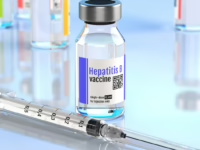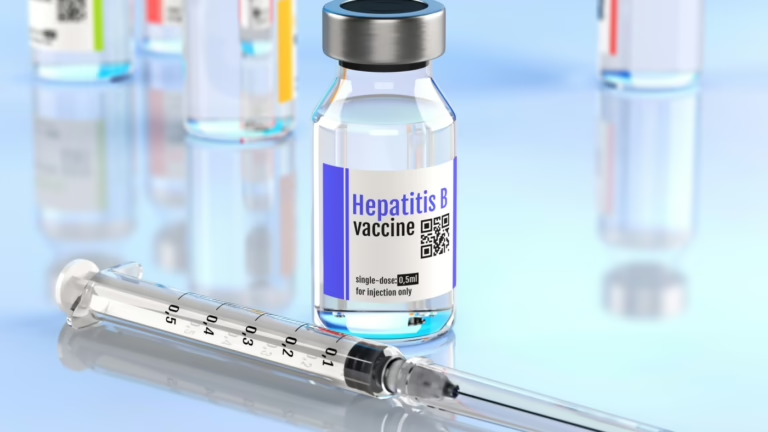Hepatitis B is a liver-targeting virus with no available cure. Following the introduction of universal newborn vaccination in the U.S., infection rates have decreased by 99%.
SERGII IAREMENKO/Science Photo Library RF/Getty Images
toggle caption
SERGII IAREMENKO/Science Photo Library RF/Getty Images
It is rare for a sitting president to dispense medical guidance publicly. Yet, during a recent White House press conference, President Trump expressed skepticism about the necessity of administering the hepatitis B vaccine to all newborns.
He stated, “There’s no need to vaccinate a baby immediately after birth for hepatitis B. I would recommend waiting until the child is around 12 years old.”
Medical experts strongly disagree with this viewpoint.
Dr. Andrew Pavia, a pediatrician and infectious disease expert at the University of Utah, described the suggestion as “highly perilous and completely irresponsible.”

Hepatitis B is a viral infection that targets the liver and currently has no cure. Chronic infection can result in severe complications such as liver cancer, cirrhosis, and even death. The likelihood of these serious outcomes is significantly greater when infection occurs during infancy.
“Approximately one in four children who develop chronic hepatitis B will eventually succumb to the disease,” explains Dr. Pavia, who also represents the Infectious Diseases Society of America.
Prior to the U.S. adopting universal newborn vaccination in 1991, around 18,000 children under the age of 10 contracted hepatitis B annually. Nearly half of these infections were transmitted from mother to child during birth. Administering the vaccine immediately after birth effectively blocks the virus from establishing infection.
The remaining infections in children occurred through other routes. President Trump suggested that since hepatitis B is primarily sexually transmitted, vaccinating infants is unnecessary. However, Dr. Pavia highlights that children face multiple exposure risks beyond sexual contact.
“There have been documented outbreaks in daycare centers, sports teams, and cases linked to sharing personal items like toothbrushes and razors,” he notes.
The hepatitis B virus is present in blood, saliva, semen, and other bodily fluids, including tears, and can survive on surfaces for up to a week. Dr. Anita Patel, a pediatric critical care specialist in Washington, D.C., warns that a child with even a minor skin injury could become infected by contact with contaminated surfaces days later.
According to the Centers for Disease Control and Prevention, nearly half of those infected with hepatitis B are unaware of their status, yet they can still unknowingly transmit the virus.
“If an individual has a bleeding cut, that blood could come into contact with an infant,” Dr. Patel explains. “Since infants often have small breaks in their skin, they are vulnerable to infection.”

Dr. Su Wang, an internist and hepatitis researcher at Cooperman Barnabas Medical Center in New Jersey, shares her personal experience. She believes she contracted hepatitis B as an infant from her grandparents, who were healthcare workers in Taiwan-a country that had high adult hepatitis B rates before launching a successful vaccination campaign in the 1980s.
“My grandparents came to help care for me during my first month, as many do, and likely transmitted the virus to me,” Dr. Wang recalls.
She emphasizes the critical importance of administering the hepatitis B vaccine at birth. Since the U.S. began universal newborn vaccination, infection rates among individuals under 20 have dropped by 99%.
“Implementing universal vaccination created a protective shield for an entire generation of children,” Dr. Wang concludes.























